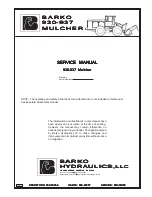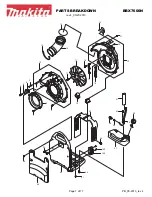
55
M32
디지털
콘솔
사용자
매뉴얼
Bank: A fixed number of channels displayed on a GUI screen.
Bass: Lower frequencies in a signal.
Bay: One of the main control surface sections.
Bus: A pathway down which one or more signals can travel.
C
Cat 5e: A specification for a type of cable used typically for
Ethernet computer networks.
Channel: Single path taken by an audio signal (input or output) through the
control centre.
Channel strip: Row of controls in traditional analogue layout used for the
shaping of a signal.
Checkpoint: A patching data store point, created by clicking
CHECKPOINT. See Patching.
Click: A method of GUI operation, mainly for button operation and
selection purposes.
CMR:
Abbreviation for ‘common mode rejection’. A measure of how well a
differential amplifier rejects a signal that appears simultaneously and in-
phase at both input terminals. CMR is usually stated as a dB ratio at a given
frequency.
Comb filtering: Removal of signal components at a number of regularly
spaced frequencies.
Compressor: A dynamics processor that reduces the level of any
signal exceeding a specified threshold volume.
Condenser microphone: A high quality mic that uses a capacitor to
detect changes in the ambient air pressure, which it then converts
into an electrical signal. This type of mic requires power from a
battery or external source.
Control centre:
The M32’s console, comprising control surface and GUI.
Control surface: Area on the control centre that houses all of the
user’s hardware controls, such as pushbuttons, control knobs,
switches etc.
Crossfade: To combine signals such that one channel or source fades out
while another fades in, but maintaining an essentially constant programme
volume.
Cursor:
Generally, used to describe the ‘I’
-shaped pointer on the GUI that
indicates a text insertion point. See Pointer.
D
D zone: Section in the input channel strip for controlling dynamic parameters.
D/A:
Abbreviation for ‘digital to analogue’. The conversion of digital
data to analogue audio.
DARS:
Abbreviation for ‘digital audio reference signal’.
Dashboard: A standard GUI screen display - usually on the master bay -
that shows all channel meters (inputs, auxes, returns, masters etc.) all of
the time.
DAW:
Abbreviation for ‘Digital Audio Workstation’. A digital audio
workstation is an electronic system designed solely or primarily for
recording, editing and playing back digital audio.
dB:
Symbol for ‘decibel’. A unit of measurement of the loudness of sound.
See dBu.
dBu: A unit of measurement of sound used in professional audio. Derived
from the decibel, where the ‘u’ stands for unloaded, this
unit is an RMS
measurement of voltage based on 0.775 VRMS, which is the voltage at which
you get 1 mV of power in a 600 ohm resistor. This used to be the standard
impedance in most professional audio circuits.
DC:
Abbreviation for ‘direct current’.
Delay: An effect by which a reproduction of a signal is
played back later then its original.
SOUND
SOLUTION
Summary of Contents for M32 LIVE
Page 1: ...3 2 MI D A S 4 0 2 5 M 3 2D I G I T A LC O N S O L E...
Page 4: ...4 M32 EMC 0V xiii 100VAC 240VAC Volex IEC Volex M32 M32 GUI GUI LCD S O U N D S O L U T I O N...
Page 50: ...50 M32 4 3 C Dimensions Front View Top View 612 S O U N D S O L U T I O N...
Page 51: ...51 M32 Rear View Side View S O U N D S O L U T I O N...
Page 64: ...S O U N D S O L U T I O N...
Page 67: ...7 7 54 2 0 1 3 T e l 0 2 2 1 6 8 4 5 6 3 F a x 0 2 2 1 6 8 4 5 3 5 w w w s s c o m c o m...
Page 68: ...midasconsoles com...














































